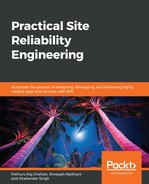Jersey is an open source framework developed by Oracle. It is the official reference implementation of JAX-RS API, which is very similar to Apache CFX. On the server side, Jersey provides a servlet implementation that scans through the predefined classes we define to identified the restful resources. In the web.xml file, which is the deployment file for web applications, we can configure either the restful servlet or the jersey servlet.
Jersey provides the implementation of the client library, which is fully compliant with the JAX-RS API. It also provides several tools for security such as authorization or bean validation. Furthermore, it allows us to integrate testing for container deployments. The current version of Jersey is 2.27. You can learn more about Jersey by going to its official website at http://jersey.java.net.
For Spring integration, we have to add the jersey-spring4 dependency, as follows:
<dependency>
<groupId>org.glassfish.jersey.ext</groupId>
<artifactId>jersey-spring4</artifactId>
<version>2.26</version>
</dependency>
Let's take a look at a basic example of how to implement the Jersey framework:
public class SimpleTest extends JerseyTest
{
@Path("hello")
public static class HelloResource
{
@GET
public String getHello()
{
return "Hello World!";
}
}
@Override
protected Application configure()
{
return new ResourceConfig(HelloResource.class)
}
@Test
public void test()
{
Response response = target("hello").request().get();
String hello = response.readEntity(String.class);
assertEquals("Hello World!", hello);
response.close();
}
}
The web request from projectURL/hello/ will match Hello World!, via @Path("/hello").
